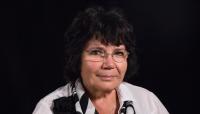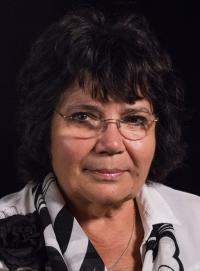When a relative of yours pays you a visit on a tank, that´s a terrible situation

Download image
Eugenie Číhalová was born on May 13th 1944 in Praha. Her father Jevgenij Feofilovič Djukov was born in Velký Kupjansk in the Russian Empire and during the Russian civil war he joined the White army. After Wrangel army had been evacuated from Crimea he accepted the offer made by the government of Czechoslovakia and settled in Praha. He studied medicine at the Charles University, then he worked as a general physician at Smíchov and also as a company physician at Škoda manufacturing plant. Together with his wife Erika Kaprasová he managed to escape the forced repatriation to the Soviet Union in May 1945. After he passed away in 1951 the family was evicted from the flat. Eugeine studied at a secondary medical school and also at the Charles University´s Faculty of Medicine. After giving up her studies in 1969 he worked as a laboratory technician at the Institute of experimental surgery at the Thomayer Hospital and also at the Institute of clinical and experimental medicine. She is the founding member of the Oni byli první committee, she is a member of the Ruská tradice association and also Ruské slovo journal editorial board member.

